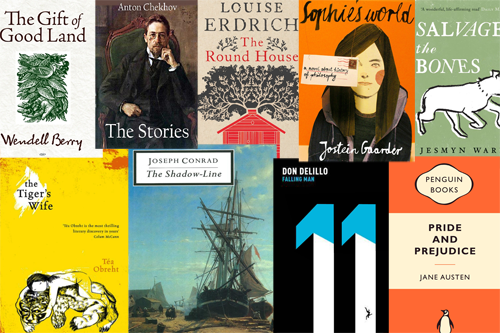Curling up with a good novel is one of life’s most solitary activities. Yet a raft of new studies suggests that reading fiction actually deepens our ability to connect with others by making us more empathetic.
In one series of studies, conducted by researchers at the New School for Social Research and published in the journal Science, participants were assigned to read different types of writing. Subsequent tests found that those who read serious literary novels were far better able to relate to other people’s feelings than participants who had read mysteries, thrillers, romances, science fiction, and nonfiction.
These findings fortify earlier studies. University of Toronto psychology professor Keith Oatley and his colleagues used MRI scans to determine that fiction reading activates the region of our brains that we use when trying to understand interactions between human beings, developing our social intelligence.
“Those who felt the most transported while reading the fiction were the most empathic. Intriguingly, subsequent tests showed that their empathy continued increasing over time.” When we get swept up in fiction, “We can become other people and enter into their social worlds. That is to say, we can be ourselves and also be Anna Karenina,” Oatley says. “And we can meet others whom we would never meet in day to day life, so we can meet Count Vronsky. Empathy and compassion are expanded by experiencing what it is like to be other people….We can sometimes get to know literary characters better than people we know as friends.”
In another new study, management professor Matthijs Bal and his colleagues at Amsterdam’s Vrije University assigned some participants to read José Saramago’s novel Blindness, a dystopian parable of a city devastated by mysterious illness, while another group read newspaper articles about international unrest. Researchers then monitored the readers’ emotional reactions. Those who read the fiction felt far more “transported,” or emotionally absorbed, than those who read the news articles. And those who felt the most transported while reading the fiction were the most empathic. Intriguingly, subsequent tests showed that their empathy continued increasing over time.
“So, is it better to read William Shakespeare or Alice Munro? Bal says different kinds of literature have been found to show similar effects in building empathy, so readers should pick up what they love.” “I was pleasantly surprised” by these findings, Bal says. “The general idea is that fiction reading changes us, but the why and how of this assumption is still relatively unclear.”
So, is it better to read William Shakespeare or Alice Munro? Bal says different kinds of literature have been found to show similar effects in building empathy, so readers should pick up what they love.
“There is no single book that will make every reader more empathetic,” he says. “We really have to be drawn into a story to be lost in a book.”
A Good Book
Ready to expand your horizons? Build your empathy with researchers’ favorite titles:
- Sophie’s World, by Jostein Gaarder
- Pride and Prejudice, by Jane Austen
- The Shadow Line, by Joseph Conrad
- The Round House, by Louise Erdrich
- Salvage the Bones, by Jesmyn Ward
- The Tiger’s Wife, by Téa Obreht
- Short stories by Don DeLillo, Wendell Berry, and Anton Chekhov
“Reading Between the Lines” by Anneli Rufus was originally published on Spirituality & Health. To view the original article, click here.
Click here to see Rose’s tips for healthy and happy relationships


